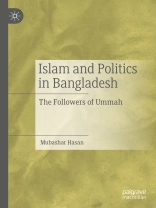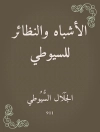This book conceptualizes the politics of Bangladesh through an Islamic concept called
ummah or the global brotherhood of Muslims. It demonstrates that, against the backdrop of geopolitics, capitalism and free flow of ideas, localization of this global religious concept at individual level, institutional level, major party platforms and state has cemented the current political condition in Bangladesh in which religiosity, religious intolerance, Islamization and extremism take place. By exploring the effects of
ummah in Bangladeshi politics, this book shows how major political parties have mainstreamed political Islam in the country. The book rejects the long standing scholarly claim of religious-secular distinction in Bangladeshi politics and argues that with most Muslim-dominated states, there are no major secular parties in Bangladesh. There are only Islamic parties, which are more or less Islamic. The purely ‘rational’ domain of politics in Bangladesh is long lost, andpolitical Islam sets the framework for politics in the country. The reason behind this logic of Bangladeshi politics is formed, contained and expanded by
ummah.
قائمة المحتويات
1. Introduction.- 2. Beyond Clash of Civilizations and Post Islamism: Ummah(s) and the Muslim World.- 3. Geopolitics of Ummah(s) in Bangladesh- A Historic Narrative.- 4. Awami League, Ummah, and Political Islam.- 5. The BNP, Ummah, and Politics in Bangladesh.- 6. Islamization, Ummah Consciousness and Mass Support for
Political Islam.- 7. Globalization and Transnational Ummah(s) in Contemporary Bangladesh.- 8. Conclusion.
عن المؤلف
Mubashar Hasan is a Research Fellow at the Department of Culture Studies and Oriental Languages, University of Oslo. He is also an adjunct fellow at the Humanitarian and Development Research Initiative in University of Western Sydney, Australia. He has published widely in academic journals and co-edited
Radicalization in South Asia published in 2019.












